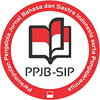LANGUAGE POLITENESS ON INSTAGRAM: A CASE STUDY OF PUBLIC OFFICER AT JAKARTA, INDONESIA
Sari
Advances in technology at this time not only to open mind but also changed the way humans communicate and interact. Forms of communication that are generally carried out face-to-face have now shifted a lot to virtual forms of communication on social media as intermediaries. Furthermore, communication on social media allows people to speak freely without thinking about language ethics and politeness. This virtual communication not only involves text alone but also uses emotions to represent a picture of their feelings. This research aims to find the use of official language on Instagram social media and to analyze the use of public officials' language when communicating on social media. The social media chosen as the subject of this study is Instagram which is widely used and accessed by internet users. This research used a descriptive qualitative method. The data source for this research prioritizes uploads by public officials only. The implementation of data collection in this study was a documentation method by collecting uploads of public officials on Instagram social media. The results of this study found that most public officials in private uploads had impolite comments seen in five factors, namely direct criticism with harsh words, encouragement of the speaker's emotional sense, protective of opinions, deliberately accusing the interlocutor, and deliberately cornered speech partners.
Teks Lengkap:
PDF (English)Referensi
Andini, C., Yassi, A. H., Sukmawaty. (2021). The Use of Honorifics in English and Buginese with special Reference to Bone Language: A Comparative Study. International Journal of Innovative Science and Research Technology, 6(7), 873-877.
Andini, C., Sosrohadi, S., Fairuz, F., Dalyan, M., Rahman, F. F., & Hasnia, H. (2022). The Study of Japanese Women in the Facial Treatment Advertisement: A Semiotics Perspective of Pierce’s Theory. ELS Journal on Interdisciplinary Studies in Humanities, 5(2), 337-347.
Chaer, A. (2010). Language politeness. Jakarta: Rineka Cipta.
Hamuddin, B., Syahdan, S., Rahman, F., Rianita, D., & Derin, T. (2022). Do They Truly Intend to Harm Their Friends?: The Motives Beyond Cyberbullying among University Students. In Research Anthology on Combating Cyber-Aggression and Online Negativity (pp. 775-788). IGI Global.
Hamuddin, B., Rahman, F., Pammu, A., Baso, Y. S., & Derin, T. (2023). Mitigating the effects of cyberbullying crime: A multi-faceted solution across disciplines. International Journal of Innovative Research and Scientific Studies, 6(1), 28-37.
Junaid, S., Ahmad, Nurhidayah, Mujizat, A., Andini, C. (2023). The Quality of Human and Non-Human Relation in Indonesia and England Portrayed in the Selected Picture Books. ELS Journal on Interdisciplinary Studies in Humanities, 6(2), 211-218.
Mudrikah, I. M. (2020). Political Branding Politisi Perempuan di Instagram: Kasus Pada Tsamara Amany Alatas. Jurnal Politikom Indonesiana, 5(2), 29-39.
Nakamura, K. (2014). The use of polite language by Japanese preschool children. In Social interaction, social context, and language (pp. 253-268). Psychology Press.
Nasution, M. M., Izar, J., & Afifah, I. H. (2021). An Analysis of Hate Speech Against K-Pop Idols and Their Fans on Instagram and Twitter from The Perspective of Pragmatics. Journal of English Teaching and Linguistics, 2(2), 91-99.
Pranowo. (2012). Berbahasa secara santun. Yogyakarta: Pustaka Pelajar.
Prihatiningsih, W. (2017). Motif penggunaan media sosial instagram di kalangan remaja. Communication, 8(1), 51-65.
Rahman, F. (2018). The Constraints of Foreign Learners in Reading English Literary Works: A Case Study at Hasanuddin University. Journal of Arts and Humanities, 7(2), 01-12.
Rahman, F., Abbas, A., Hasyim, M., Rahman, F., Abbas, A., & Hasyim, M. (2019). Facebook Group as Media of Learning Writing in ESP Context: A Case Study at Hasanuddin University. Asian EFL Journal Research Articles, 26(6.1), 153-167.
Rahman, F., & Amir, P., Tammasse. (2019). Trends in Reading Literary Fiction in Print and Cyber Media by Undergraduate Students of Hasanuddin University. International Journal of Education and Practice, 7(2), 66-77.
Siregar, I., & Sosrohadi, S. (2021). Analysis of Code Mixing in Jerome Polin Youtube Content “Nihongo Mantappuâ€Â. International Journal of Linguistics, Literature and Translation, 4(12), 01-08.
Sukmawaty, Rahman, F. F. & Andini, C. (2022). Covid-19 Pandemic and Axiology of Communication: A Study of Linguistic Phenomena. IJISRT, 7(4), 1079-1087.
Sukmawaty, S., Andini, C., & Rahman, F. F. (2022). The Shift of Honorifics due to The Promotion As A Government Official: Comparative Study. ELS Journal on Interdisciplinary Studies in Humanities, 5(1), 166-176.
DOI: https://doi.org/10.33387/tekstual.v21i2.6369
Refbacks
- Saat ini tidak ada refbacks.
Tekstual terindeks oleh:



